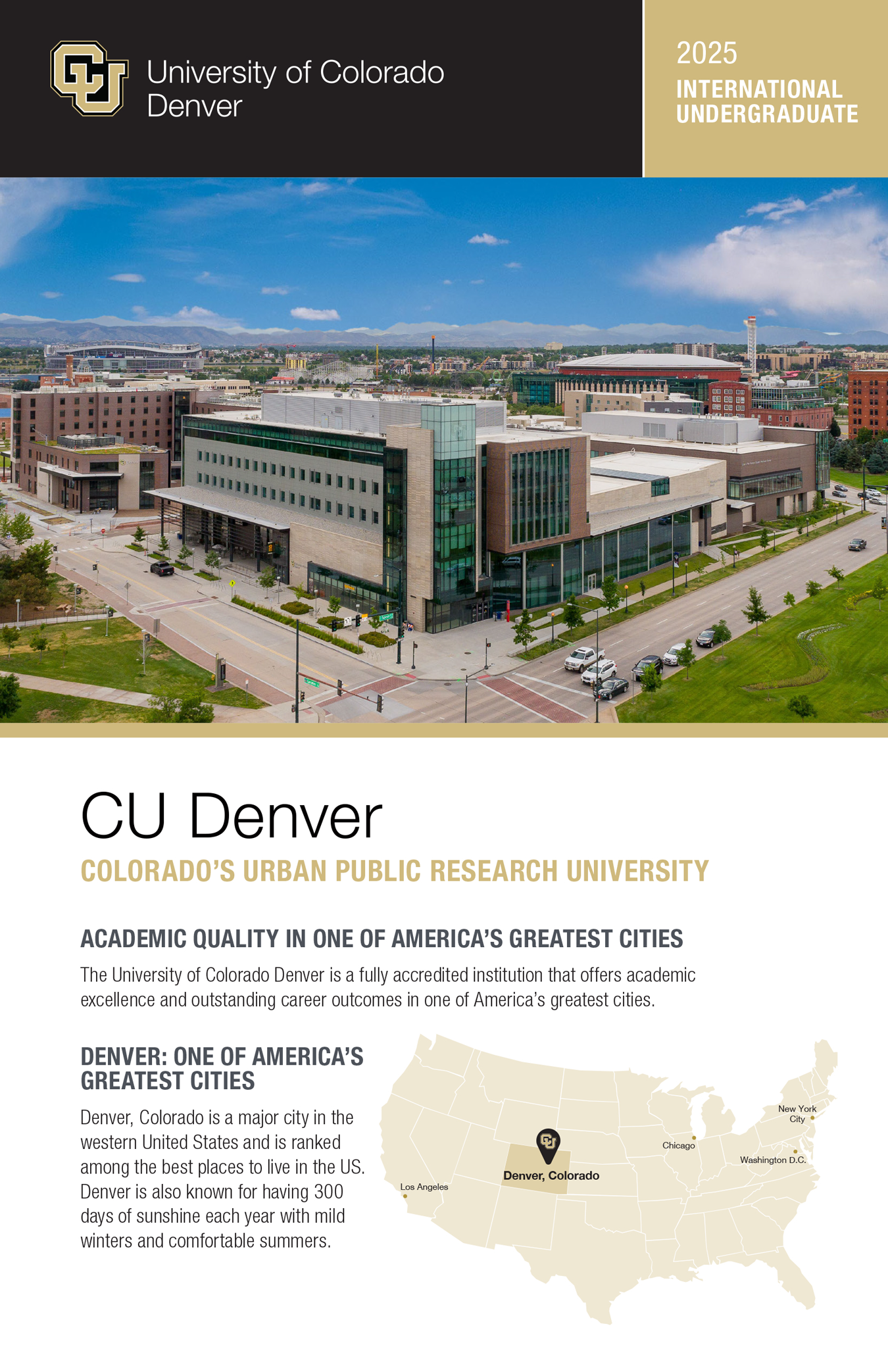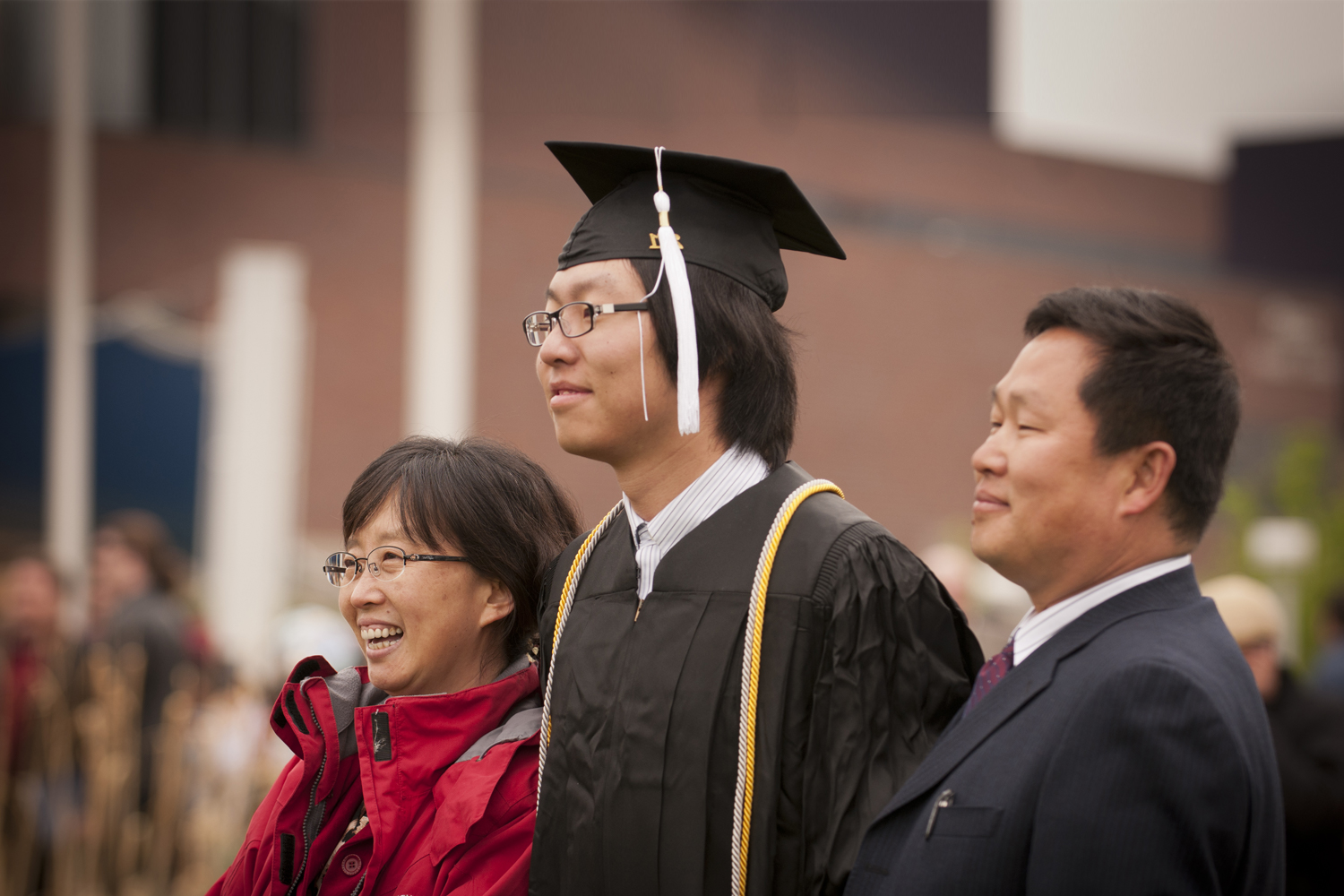Non-traditional Undergraduate Inspires Fellow Students
Betty Goes to China
May 24, 2015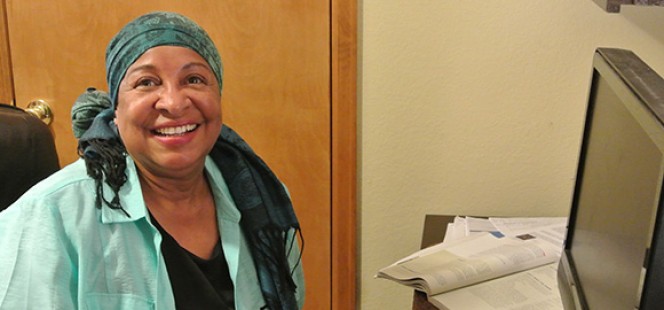
Betty Pearson is a trailblazer. As a first-generation, legally blind, 66-year-old undergraduate, she has been faced with many challenges, but she has never let that stop her. For Pearson, getting her college degree was just another obstacle to overcome. So, after 40 years as a working mom, Pearson returned to school as a student in CU Denver’s College of Liberal Arts and Sciences. Now, having just completed her fifth semester of college, Pearson decided she was ready for a new challenge, an adventure—studying in China.
Pearson has never been out of the country, never had a passport. When she told her siblings about her plan to go on a Maymester trip to China, they thought she had lost her mind. But her two sons and those close to her were not at all surprised that Pearson would jump at the opportunity to travel to places unseen.
“It’s no secret that I’m not a ‘traditional’ student,” Pearson says, “so I don’t want to just have a ‘traditional’ college experience. I don’t want to just get my degree.
I want to experience and learn about other cultures and broaden my own perspective, and that’s why I decided to study in China.”
But before Pearson could travel to China, she would need the help of two CU Denver guardian angels who would have to find a way through a maze of unexpected policy and procedural changes to make Pearson’s dream come true.
“NOT A TRADITIONAL STUDENT”
Pearson is number eight of 13 children (six brothers, six sisters), who grew up on a rural farm road just outside of Marshall, Texas. When Pearson was young, her father often left home in pursuit of work to support the family. He worked as a laborer, in oil fields, on construction sites, in whatever job he could find until he landed a job as a machinist for Marshall Pottery, where he later retired. Her mother was a homemaker who always put her children first. She grew almost everything the family ate and made almost everything the family wore. Pearson says her parents and grandparents worked hard to take care of the family, but, with segregation and economic hardship, none of them ever went to college. In 1966, Pearson graduated from high school and soon began college but never finished. Like her mom, Pearson got married, had her sons, and never looked back.
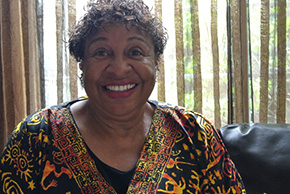
Betty Pearson
Pearson’s mom dreamed that at least one of her 13 children would finish college, and Pearson always wanted to be that one. She was the first in the family to go off to college after high school, and she always felt a little guilty that she didn’t finish. Eventually, her mom’s dream became her dream, and when her mom passed away, Pearson decided to honor her memory by making that dream come true.
“I’ll be the first one of my siblings to get a bachelor’s degree,” Pearson says. “My older siblings put together money, clothes, and everything I needed to go off to college the first time. In honor of their sacrifices and my parents’, I’m going to finish college this time.”
Growing up in such a large family with so many different personalities, Pearson always wanted to understand how the brain works to control personality and behavior. When she returned to school, she decided to major in Psychology and minor in Communication—a combination she’s hoping she can use to help those suffering from PTSD and other disorders. After talking to Vietnam, Persian Gulf and Desert Storm vets, Pearson realized that many of them liked the idea of being counseled by a person who had lived through the wars where they had served. Veterans are just one of the populations Pearson hopes to assist when she graduates.
For now, Pearson spends most of her time at school—more time than she spends at home. She loves being in college, even though it has its challenges. She’s adapting to doing academic work after losing her vision to macular degeneration about 15 years ago, and her age doesn’t make her studies any easier. Pearson is about 40 years older than the average college student, so she’s had to learn how to use new technology and engage in group study sessions over pizza and beer—an adjustment to working with millennials that she has thoroughly enjoyed. Still, even without age-appropriate peers, Pearson says she doesn’t feel alone. TRiO Student Support Services, Disability Resources and Services, and the Educational Opportunity Program have all been there to help her find resources, navigate problems, and provide every tool she needs to succeed.
“Going back to college in your 60s isn’t easy, especially with a disability,”
Pearson says. “But I have so much support from the school. There’s something special about this place. I’ve been to other schools, but the people at CU Denver are always there to help me. I wouldn’t be able to do it if it wasn’t for them.”
“NOT A TRADITIONAL COLLEGE EXPERIENCE”
Pearson says she didn’t choose China as her study abroad location—it chose her. When she heard that students could travel and spend a semester learning abroad in Beijing, she knew she had to go. She believed studying abroad would enhance her communication skills, study skills, and overall academic performance, providing real-life lessons in a completely different culture. She put in all the work: she got a passport, all the required immunizations, and funding for her trip. But during the process, new restrictions emerged that halted Pearson’s plans, and she learned she would not be able to study in China for a full semester.
“She really wanted to go, and we really wanted her to go,” says Jessica Tharp, the Asia Study Abroad Coordinator.
“We wanted her to get that new perspective on her world and have the chance to step outside of her comfort zone. So, I suggested the Maymester course.”
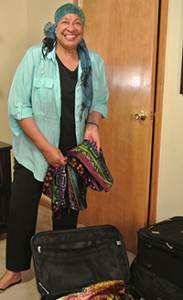
Packing to Go Abroad
The 2015 Maymester course, Narratives of the New China: Engagement and Exploration, is a two-week course that brings students to Beijing, Shanghai and Nanjing to see Chinese public memorials, advertising, and everyday sites of cultural production to study how China presents itself to the world. It’s an immersion in Chinese culture that is just as exciting to Pearson as the idea of a full semester there, and it brought her dream back to life. Now the final hurdle was finding funding.
That’s when her second guardian angel stepped in. Teresa De Herrera, director of TRiO Student Support Services, worked with the director of the Office of International Affairs to allocate funding that will help pay for Pearson’s upcoming trip.
“That’s our role in TRiO,” De Herrera says, “to work with first-generation students and advocate for them so hard-working, deserving students like Betty can have as many great academic and life learning experiences as possible.”
Pearson is not often at a loss for words, but she struggles to find the best way to express her gratitude for the work that De Herrera and Tharp did to make the trip possible. She feels the trip is a gift—an adventure that most people don’t get to experience at any point in their lives, much less in their 60s.
Two weeks before leaving for China, Pearson had already begun laying out clothes on her suitcase—lots of lightweight dresses, and a pair of hiking shoes for the long walks. She was looking forward to all the walking because it means she will be immersed in a different culture, experiencing things that she can share with others. When she returns, she intends to facilitate a workshop in collaboration with TRiO to share her experiences with the hope of encouraging other students to study abroad regardless of age, culture, or disability.
“I want to come back and encourage other non-traditional students that they can do this,” Pearson says.
“There are no excuses anymore. If you want to do something like go back to school or study abroad, you can. If I can do it, anyone can do it.”
LEARN MORE
Study Abroad : ucdenver.edu/studyabroad
Office of International Affairs : international.ucdenver.edu
Original Story : “Betty Goes to China”
Published: May 19, 2015
Contact: Courtney.Harrell@ucdenver.edu
